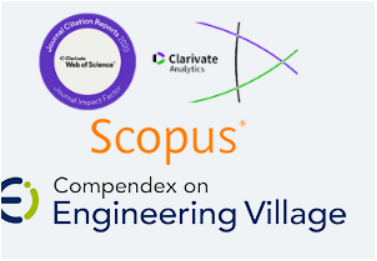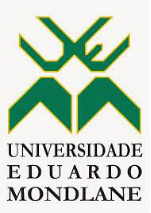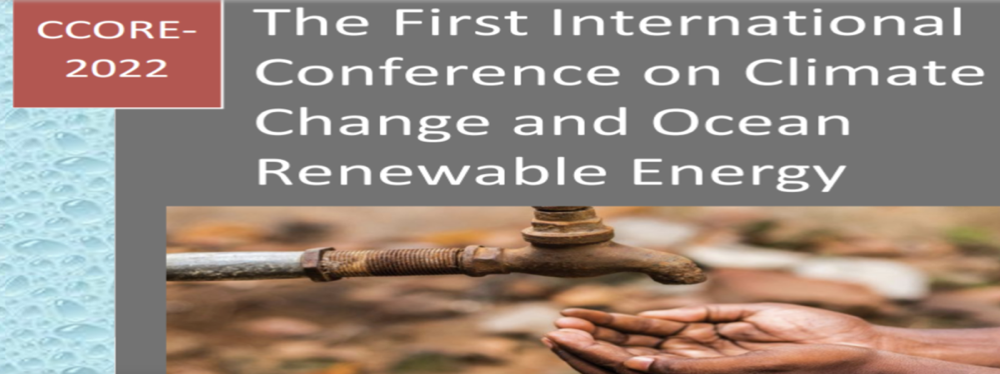November 4-7, 2022 | Online
For submission and registration, please email us at: [email protected]
| 1. Introduction |
Renewable energy is energy that is collected from renewable resources that are naturally replenished on a human timescale. It includes sources such as sunlight, tides, waves, wind, rain, and geothermal heat. According to BP’s-2018 Energy Outlook (EO), renewable energy will be the fastest growing source of energy, increasing fivefold by 2040 thus providing around 14% of global primary energy at this future point in time. On the other hand, climate change is bringing about rising temperatures, which have significant negative impacts on humans and the environment, and transitioning to renewable energy sources, such as biofuels, can help meet this challenge. Transitioning to renewable energy, and reducing reliance on fossil fuels, is one way to help slow down the effects of climate change. While renewables used to be a more expensive option, new clean energy technologies are lowering costs and helping to move economies away from fossil fuels.
The 1st International Conference on Climate Change and Ocean Renewable Energy (CCORE 2022) that will be held from November 4-7, 2022, ONLINE via MS Teams-Virtual conference without any physical participation. It delightfully welcomes all the researchers and developers to share their experiences and ideas through research talks and presentations from diverse fields in climate change and ocean renewable energy. This event offers a platform in bringing together a forum for students, postdocs and established scientists to exchange their ideas and contribute to an integrative approach to climate change and ocean renewable energy. The submissions can be in the form of oral presentations or poster presentations, through virtual platform. The best oral and poster presentations of each session will be honored with a certificate of merit. Selected papers after processing through blind peer review will be considered for inclusion in the international peer-reviewed SCI/ISI journals and conference proceedings.
| 2. Organizers |
Dr., A.M. Hoguane, Centre for Marine Research and Technology, Eduardo Mondlane University, Mozambique.
Dr., K.L. Priya, TKM College of Engineering, India.
Dr. S. Haddout, Faculty of Science, Ibn Tofail University, Kenitra, Morocco.
Dr., Joan Cecilia C. Casila, University of the Philippines Los Baños, Philippines.
Dr., G. T. Gimiliani, São Paulo State University (UNESP), Brazil.
Dr., I. Ljubenkov, Water Development, Croatia.
| 3. Call for Papers |
Prospective authors are requested to submit quality research articles on the Climate Change and Ocean Renewably Energy, and key topics can be but not limited to:
| Renewable energy technologies (e.g. Coastal and Offshore Wind, Waves, Tides, Ocean Currents, Salinity Gradient Power, Ocean Thermal Energy Conversion (OTEC), Hydro Power Systems (HPS)…etc.) |
| Global environmental change and ecosystems management |
| Prediction modeling and decision support tools |
| Physical oceanography |
| Intelligent integration of renewable energy technologies |
| Global warming |
| Ocean energy development |
| Ocean energy policies and economics |
| Climate change impacts on Ocean renewable energy |
| Impact of climate change on water resources and river management |
| Hydrology and climate change |
| Groundwater management and climate change |
| Development and utilization of Ocean Energy |
| Fluid mechanics |
Note: All paper submissions for the conference will be peer-reviewed based on originality, technical/or research content/depth, relevance to conference, and readability.
As first edition: All Conference services are:
1-Free of charge
2-Free presentation
3-Free publication (Selected papers will be recommended to publish in international peer-reviewed SCI/ISI journals (with Impact Factor (IF)) and conference proceedings.
4-Free certificate
| 4. Committees |
Honor Committee

David Bowers is Emeritus Professor of Physical Oceanography at Bangor University in the UK. He studied Physics at Manchester at the tail end of the 1960’s and came to oceanography as a mature student during an oil crisis in the mid-1970’s. He obtained his Masters and PhD degrees at the University College of North Wales and worked on a post-doc at Flinders University in Australia before taking up a post as lecturer at Bangor. He retired in 2016 as head of physical oceanography at Bangor with a career researching tides, turbulence, particle flocculation and marine optics. He has written several books and is currently finishing a popular science account of the oceanography of shelf seas.

K.L.Priya is an Assistant Professor in the Department of Civil Engineering, TKM College of Engineering, Kollam, Kerala, India. She is a pronounced researcher in estuarine studies and her research interests include estuarine contaminant dynamics, energy from estuaries, flocculation and settling of suspended sediments, groundwater quality studies, water and wastewater treatment involving flocculation. To her credit, she has over 36 international publications in reputed journals, 6 book chapters, 1 book and over 30 papers in conferences and the recipient of over 5 awards. She has completed 4 funded research projects, 5 major consultancy projects, and guided 4 IAESTE interns, 2 research scholars and over 40 U.G./P.G. projects. She is involved in collaborative research with 15 universities/institutions worldwide. She is a State-level core team member of the evaluation committee of the DPRs for pollution abatement of rivers in Kerala, Core-Committee member for the Conservation and Management of Ashtamudi wetland and served as the Lead Chair of the scientific session of the International Conference of Coastal and Estuarine Research Federation USA. She is a Guest Editor of Regional Studies in Marine Science, Elsevier and active reviewer of reputed journals of Elsevier, Taylor & Francis, Springer, etc.

A.M. Hoguane is a Full Professor of Physical Oceanography at the Eduardo Mondlane University. He graduated in Physical Oceanography and Mathematics in 1993 and obtained his PhD degree in Physical Oceanography in 1997, at the University College of North Wales, UK. He was a post-doc research fellow at the Institute of Geophysics, University of Bergen. Currently is the Director of the Centre for Marine Research and Technology and holds the UNESCO Chair in Marine Sciences and Oceanography at the Eduardo Mondlane University. His main research interest areas include tides and tidal currents, hydrodynamics of estuaries and coasts, marine physical-biological coupling and energy from the sea. He has several articles published in peer-reviewed journals and contributed chapters in books.

I. Ljubenkov is a researcher and an authorized civil engineer employed in his own company Water Development, Split, Croatia. His scientific interest refers to hydrology, hydraulics, estuary analysis, river engineering and water resource management, while the professional work focuses on designing and supervising the construction of utility facilities and hydraulic systems. He has several articles published in peer-reviewed journals and contributed chapters in books.
| 5. Technical Program Committe Chair |
Dr. S. Haddout, Faculty of Science, Ibn Tofail University, Kenitra, Morocco.
Dr. Joan Cecilia C. Casila, Land and Water Resources Division, IABE, CEAT, University of the Philippines Los Baños, Philippines.
Dr. G. T. Gimiliani, São Paulo State University (UNESP), Brazil.
| 6. International Technical Program Committee |
Dr., D. G. Bowers, Universite of Bangor, UK.
Dr., D. Abessa, São Paulo State University (UNESP), Brazil.
Dr., F. Matic, Institute of oceanography and fisheries – Split, Croatia.
Dr., V. Baiju, Department of Mechanical Engineering, TKM College of Engineering Kollam, India.
Dr., K. R.Renjith, Ecology and Environment Research Group, KSCSTE-Centre for Water Resources Development and Management, India.
Dr., C. C.Boaventura, Eduardo Mondlane University, Mozambique.
Dr., M. A. Quirapas-Franco, Energy Studies Institute, National University of Singapore.
Dr., S. Junianto, Electronic Engineering Polytechnic Institute of Surabaya (EEPIS), Indonesian.
Dr., Z. Bolatova, Department of Science and Commercialization, Almaty University of Power Engineering and Communication, Kazakhstan.
Dr., Ronaldo B. Saludes, Agrometeorology and Farm Structures Division, University of the Philippines Los Baños.
Dr., Y. Haddout, Polydisciplinary Faculty of Ouarzazate, Ibn Zohr University, Ouarzazate, Morocco.
Dr., A. Rafiki, Polydisciplinary Faculty of Ouarzazate, Ibn Zohr University, Ouarzazate, Morocco.
Dr., E. Essaghir, Faculty of Science Ain Chock, Hassan II University, Casablanca, Morocco.
Dr., D. Elemam, Environmental Sciences, Department Faculty of Science- Damietta University, Egypt.
Dr., S. Mesbaholdin, Department ofIndustrial Engineering, Central Tehran Branch, Islamic Azad University, Tehran, Iran.
Dr., G. T. Gimiliani, São Paulo State University (UNESP), Brazil.
Dr., K.L. Priya, TKM College of Engineering, India.
Dr., A.M. Hoguane, Centre for Marine Research and Technology, Eduardo Mondlane University, Mozambique.
Dr., Joan Cecilia C. Casila, University of the Philippines Los Baños, Philippines.
Dr., I. Ljubenkov, Water Development, Croatia.
| 7. Keynote Speeches |

Dr. Mary Ann Quirapas-Franco
Energy Studies Institute, National University of Singapore
Speech Title: Ocean Energy in Southeast Asia: Opportunities, Consequences, and Risks towards Holistic Adoption1
Abstract: This presentation is based on a current study of the authors that examines the opportunities, challenges, and risks of adopting ocean renewable energy (ORE) in Southeast Asia (SEA) beyond its technical aspects. It gives a critical analysis of the socio, economic and political aspects of ORE development at a regional scale, which has been less studied in the existing literature. Aside from providing a sustainable energy source, the development of the ORE as a sector could provide various benefits to SEA countries through employment opportunities, inter-industry learning, and improving economic resilience. However, these benefits can only be maximised if the costs of deployment, operation and maintenance are reduced, the impact on the marine environment is taken into consideration, and public acceptance issues are addressed. Beyond a cost-benefit analysis, this presentation assesses the unintended risks and consequences of ORE technologies and activities in the SEA and recommends different policy strategies to mitigate them. It concludes that for the region to reap the benefits of ORE, a coordinated approach among various stakeholders (technology developers, policymakers, and end-users) is needed to minimise the risks and unintended consequences.
Keywords: ocean renewable energy, Southeast Asia, renewable energy adoption, island communities, energy security.
*Original paper is co-written with Araz Taeihagh, PhD of Policy Systems Group, Lee Kuan Yew School of Public Policy, National University of Singapore. DOI: https://doi.org/10.1016/j.rser.2020.110403

Dr. Sony Junianto
Electronic Engineering Polytechnic Institute of Surabaya (EEPIS), Indonesian
Speech Title: The Development of Tidal Current Energy Technology for Islands: A case Study of Indonesia
Abstract: Indonesia’s electrification ratio in the third quarter of 2021 will reach 99.40%. This achievement was followed by a surplus of electricity supply conditions on the island of Java. On the other hand, several regions outside Java, especially the islands of eastern Indonesia, have electrification ratios far below the national electrification ratio. For this reason, the increase in electricity supply in the area is carried out by using Diesel Power Plant (DPP), where this plant releases carbon into the environment. Currently, the government will implement an energy transition program in which energy use will be diverted to energy sources that are environmentally friendly and do not produce carbon. This energy transition is carried out using renewable energies that can be utilized by the archipelago is marine energy. The technology for generating marine energy that is currently developing rapidly is tidal current energy. Since 2015, Dr. Sony Junianto has been researching the technology of tidal current energy conversion system (TCECS) with single and twin turbines with a floating system using Quad-spar. Therefore, this research is expected to continue to downstream in the fulfillment of tidal current energy industry in Indonesia.
Keywords: Tidal Current Energy, Quad-spar Technology, Tidal Current Power Plant, Islands Power Plant

Dr. Zhansaya Bolatova
Department of Science and Commercialization, Almaty University of Power Engineering and Communication, Kazakhstan
Department of Agronomy and Technical Sciences, Zhetysu University named after I. Zhansugurov.
Speech Title: Climate change impact on agriculture of Almaty region, Kazakhstan
Abstract: The global processes of climate change under the influence of anthropogenic factors entail extreme and almost irreversible consequences. It is obvious that climate change affects agricultural production and its productivity throughout the world. Agriculture, which is one of the major sources of greenhouse gas emissions, can play an important role in mitigating the effects of climate change. Kazakhstan is the most important supplier of grain and grain products, is an important link for Central Asia. Kazakhstan also has plans to increase the number of livestock for 100% domestic supply of meat, but the issue rests on the quality and availability of pastures affected by climate change. Analyzes showed that under the conditions of the expected climate in 2030, the average yield of spring wheat in seven studied Kazakhstan’s regions (Akmola, Aktobe, West Kazakhstan, Karaganda, Kostanay, Pavlodar) will be decrease and in the conditions of 2050 – 51-80% will be decrease of production. This means that while maintaining the existing stage of farming culture, the yield of spring wheat by 2030 will decrease to 13-37%, which will lead to a reduction in the area by 23.86% of the total area of crops in 2019. Objectives of the review: to analyze the processes of climate change and to study the economic impacts of climate change on agriculture in Kazakhstan. For article have been used different literature as IPCC, WMO, WTO, FAO, UNEP, UNFCCC, UNDP, IMF, WB, OECD, KAZHYDROMET, IRRI, Committee of the Statistics of the Kazakhstan, Turkish State Meteorologic Service reports etc.
Keywords: Climate change, agriculture production, impacts of climate changes, greenhouse gas emissions, yields.

Dr. Eva Kremere
International Consultant, United Nations Industrial Development Organization (UNIDO)
Tentative Speech Title: United Nations Industrial Development Organization’s plans towards climate change and current trends on hydropower
List of speakers will be updated soon…
| 8. General Information and Presentation Guideline |
Publication and Index:
Accepted articles will be published in the conference proceedings which will be indexed by, Scopus, Web of Science, and other databases. Additionally, selected papers will be recommended for publication in the related SCI/ISI journals with IF.

Dates and conference program
Papers submission deadline: September 20th, 2022
Acceptance notification: September 30th 2022.
Camera ready: 20th, 2022
Conference dates: November 4-7, 2022
Detailed conference program will be updated a month before the beginning of the conference.
Submissions guidelines
Abstracts or full papers will be accepted in English and WORD 2007(.doc)format only. Please submit your abstracts/papers to: [email protected]
1-Abstract Template: (click)
2-Full paper Template download: (click)
3-Poster Template download: (click)
All Accepted full paper will be for both presentation and publication in the conference proceedings or recommended for possible publication in related SCI journals.
For more information, please contact us at [email protected]
Online Presentation
Considering the world pandemic, online presentation will be available for all participants. Below are instructions to be adhere to:
a. Online Oral Presentations
The online oral presentation will be conducted via Microsoft Teams Meeting.
If you are not able to deliver the presentation through Teams at your assigned time, please record the presentation at your convenience time and send it to us, we will play it at your speech time. The video uploaded should be in the format of .mp4. The Video submission deadline is on Oct 26, 2022.
b. Online Poster Presentations
Online Poster Presentations will consist of two parts:
**Poster Presentations: A collection of posters in PDF format (with/without audio) will be available at conference website for attendees to view from Oct 30, 2022.
**Poster Q&As: Live poster Q&A sessions will be held via Microsoft Teams Meeting for attendees to meet virtually with presenters and ask questions or give feedbacks.
About the Best Presentation
One Best Oral/Poster Presentation will be selected from each scientific session and will be awarded with a certificate of merit. The best presenter of each session will be awarded with free registration for the next CCORE.
Important Notice
Due to the nature of an online conference, all posted video presentations and poster presentations will be available publicly. It is important for presenters to understand that items available at the conference website are, public, citable, shareable, and available online for a certain period of time.
Presenters, who have preliminary/sensitive data and are not comfortable with posting online, please indicate your preference in the submission and prepare accordingly your presentation.
| 9. Contact |
All questions about submissions should be emailed to:
Dr.S.Haddout
Dr. K.L.Priya
E-mail: [email protected]
WhatsApp : +212 624 168 024
Facebook page: https://www.facebook.com/International-Conference-on-Climate-Change-and-Ocean-Renewable-Energy-100229542706661
| 10. Supported by |





